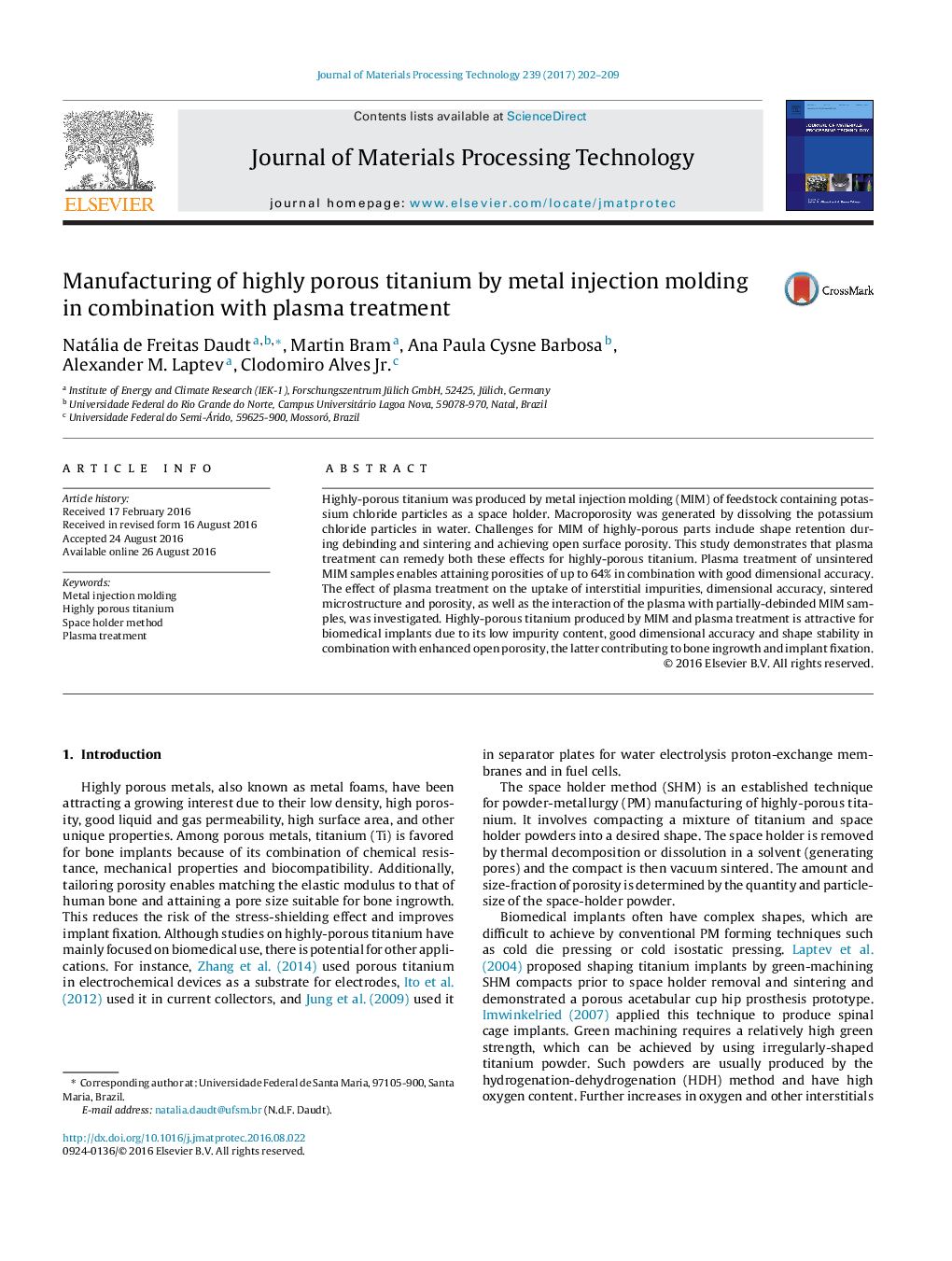| Article ID | Journal | Published Year | Pages | File Type |
|---|---|---|---|---|
| 7176612 | Journal of Materials Processing Technology | 2017 | 8 Pages |
Abstract
Highly-porous titanium was produced by metal injection molding (MIM) of feedstock containing potassium chloride particles as a space holder. Macroporosity was generated by dissolving the potassium chloride particles in water. Challenges for MIM of highly-porous parts include shape retention during debinding and sintering and achieving open surface porosity. This study demonstrates that plasma treatment can remedy both these effects for highly-porous titanium. Plasma treatment of unsintered MIM samples enables attaining porosities of up to 64% in combination with good dimensional accuracy. The effect of plasma treatment on the uptake of interstitial impurities, dimensional accuracy, sintered microstructure and porosity, as well as the interaction of the plasma with partially-debinded MIM samples, was investigated. Highly-porous titanium produced by MIM and plasma treatment is attractive for biomedical implants due to its low impurity content, good dimensional accuracy and shape stability in combination with enhanced open porosity, the latter contributing to bone ingrowth and implant fixation.
Related Topics
Physical Sciences and Engineering
Engineering
Industrial and Manufacturing Engineering
Authors
Natália de Freitas Daudt, Martin Bram, Ana Paula Cysne Barbosa, Alexander M. Laptev, Clodomiro Jr.,
